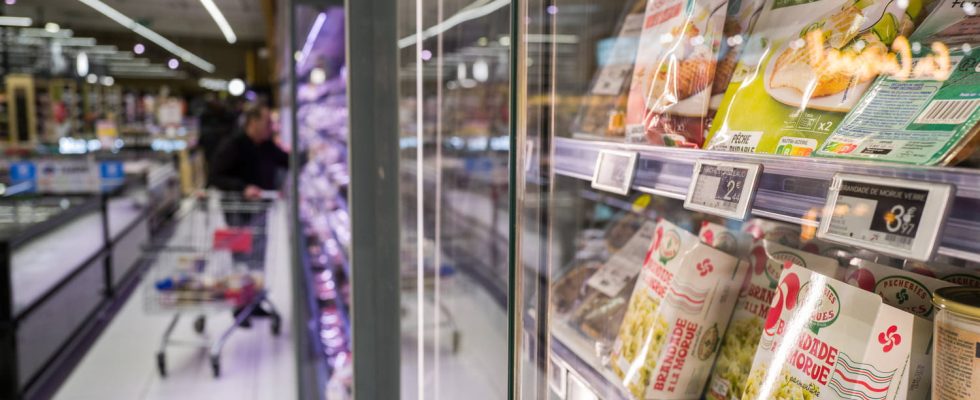A ministerial decree provides for the arrival of new labels for products in supermarkets from July 1. It contains valuable information.
With inflation, several new methods are being used by supermarkets that can mislead customers. For several months, the words “shrinkflation” or “cheapflation” have appeared in the news, describing very dark realities for consumers: the first in particular consists of reducing the quantity of a product without changing its price, or even the ‘increase while the second rather reduces the quality. However, these practices remain legal.
Bruno Le Maire wants to put an end to this type of practice, which he did not hesitate to describe as “scams”, and is above all keen to better inform consumers. With Olivia Grégoire, Minister Delegate in charge of Consumer Affairs, the Minister of the Economy unveiled a ministerial decree which will make it compulsory to inform consumers in the event of shrinkflation. They noted that “the increase in price relative to quantity may be difficult to perceive by the consumer at the time of purchase”, as specified in the decree.
This is why from July 1, 2024, it will be necessary to inform consumers of changes in consumer products which have undergone a “downward change in weight or volume leading to an increase in price per unit of measurement”. “From July 1, it will therefore be mandatory to indicate when a food product changes in size or weight. The indication must in particular specify the evolution of the price in relation to weight, so that the consumer knows the true evolution of the price”, summarized the Minister of the Economy.

What form will this indication take? According to Olivia Grégoire, it will be a “poster affixed near the product”. It will be mandatory for the two months following the marketing date. Asked by West France, the minister gave an example of wording: “it will be written: for this product, the quantity sold has increased from X to Y and its price per kilo, gram or liter has increased by X% or X euros”. If the indications appear to be doubtful, consumers are invited to report it on the application or the site SignalConso of the government.
All industrial food products but also non-food products, such as laundry detergent for example, are affected. However, prepackaged foods whose quantity may vary, such as those taken from a caterer, are exempt, as are purchases made in bulk (fruits and vegetables). According to Sophie Coisne of 60 Millions de consommateurs, who spoke on RMC Consoshrinkflation affects 2% of products sold in supermarkets. BFMTV had listed 150 affected products last September: this includes snacks, toilet paper, drinks and baby diapers.
